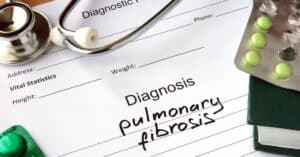You’ve probably noticed that more and more media attention has been focused on a substance called cannabidiol (CBD), and there are claims that this substance can do miraculous things like control the spread of cancer.
CBD is undergoing the same type of scrutiny and claims that revolve around vaping.
CPD does offer some potential benefits, but there is currently little research available to show how it can help you medically.
What Is CBD?
CBD is one of the thousands of compounds called cannabinoids that are found in the cannabis plant.
To many people, cannabis is synonymous with illegal marijuana, but the Agriculture Improvement Act of 2018 has made the hemp plant, a type of cannabis that contains less than 0.3% THC, legal from a federal perspective.
CBD can be derived from hemp, and this means its possible health benefits can now be more extensively studied.
What Forms of CBD Can Be Taken?
Many types of CBD products have appeared since the Agriculture Improvement Act of 2018 was passed, and so there are several ways people can take CBD.
Some of these forms include:
- Foods and drinks – Companies have begun adding CBD to various foods, and you can find it added to drinks, too. Most edibles that contain CBD take between 20 minutes and 4 hours to take effect.
- Oral – CBD is available in a growing number of over-the-counter pills and capsules. These oral alternatives look similar to vitamins and usually contain a CBD isolate or oil.
- Oils and tinctures – These are highly concentrated forms of CBD that are designed to be placed under the tongue with a dropper. From there, the CBD is absorbed into the bloodstream.
- Topicals – CBD is also included in products designed to be placed directly on the skin, hair or nails.
- Vaping – Vaping has not been proven to be safe in any form. Problems with vape liquids are known by the CDC, and some include CBD. Some e-cigarette liquids contain CBD, and they’re vaporized just like other vape liquids. Typically, CBD liquids don’t contain nicotine.
Is There Any Proof That CBD Helps COPD?
Not much research is available on CBD’s effects on chronic obstructive pulmonary disease (COPD).
There are some preliminary results that are encouraging. However, the results are based on animal studies, and the effects on humans are not well known.
A 2015 study has shown that CBD can help open up bronchial passages, and this could help COPD patients breathe more easily and avoid low blood oxygen levels and other complications.
Further, a 2014 CBD study on mice revealed that CBD helped reduce inflammation and improve lung function in mice with damaged lungs.
Be Cautious if Adding CBD to Your COPD Treatment Plan
Since there has been a shortage of CBD research, there is little information about how long-term use of this substance could affect the body. Also, it isn’t clear how it reacts with other drugs.
At this stage, there is no indication that it can cure COPD or any other medical condition. Before you include CBD in your COPD treatment plan, it’s a good idea to consult your doctor.

Christine Kingsley, APRN is the Health and Wellness Director at the Lung Institute where she focuses on providing helpful online resources for people looking for information on various lung diseases, breathing exercises, and healthy lifestyle choices. She advocates for holistic care that involves working with your doctor to explore all options including traditional and alternative care while focusing on diet and exercise as proactive measures.









